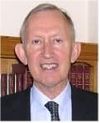
Last month we introduced Rolfe Barnard (1904-1969) and reviewed his early life and ministry. We now move on to consider his wider ministry and its extensive fruits.
Barnard preached extensively in southern USA and in Canada. Thousands were converted and many decisively influenced towards the Reformed faith. Whole churches were sometimes claimed for the truth.
The key elements of Barnard’s ministry are well illustrated by John Thornbury’s account of his own conversion at the Ashland meetings. I quote this account at length.
Aeroplane rides
Thornbury writes: ‘I was a teenage boy and attended, along with my mother, younger sister and brother…
‘In those days evangelistic services were … known as “revival meetings” … [and] were extravaganzas. They featured musicians, former boxers, convicts and entertainers … and all kinds of gimmicks and goodies for the youth.
‘Aeroplane rides were offered for those who brought enough people to church and there were rewards for those who induced others to “walk down the church aisles” after the sermons.
‘After all the excitement died down, people usually went about their sinful ways of living just as before.
‘Like all the guest-evangelists who came, the picture of Barnard was placed on posters and nailed all over town. Beneath his picture was an interesting slogan. It said, “The evangelist who is different”…
‘After a few sermons in the church, folk knew just how different Rolfe Barnard was … There was none of the flashy demeanour, but a grave and dignified bearing, like one who had been sent on a mission … he was not there to whip up religious excitement, but to deliver a message from God.
Different preaching
‘The message was as startling as it was different. It centred on the character of God. The deity most people believed in was a nice sort of fellow who did his best to save people but was often frustrated in the attempt. Many times I heard preachers say, “God has done all he can for you, now it is up to you”.
‘Barnard, on the other hand, preached a God who was sovereign and omnipotent. One who dispensed his mercy according to his own discretion.
‘He preached that sinners were not to come to God with the idea of helping him out of his dilemma, but they were to come as guilty sinners, suing for mercy. He exalted the holiness of God and the strictness of his Law. This, you can be sure, was different!
‘Rumours began to spread all over town that a Calvinist had come to Ashland. Some reacted with amazement, some with confusion, others with downright anger. But a small group rejoiced and said, “We have been wanting to hear this for years”…’

Conviction
Thornbury continues: ‘The pastor, Don Wells, after much heart-searching and Bible study, came to believe in the doctrines of grace … and invited Barnard back in August 1951 to hold a tent meeting in a large park downtown…
‘I had been baptised at the age of 12, but was utterly without any vital relationship with God … Still, I did not even want to consider that I was not a Christian…
‘We were all fascinated with his style, though he seemed awfully stern and rough. Plain truths of the Word of God were set forth, even the harshest, in their naked reality. One of his favourite texts was “God will have mercy upon whom he will have mercy” (Romans 9:15).
‘Shortly after the meetings started, there began to be a “breaking up”. Many, mostly adults, began to go forward after the messages and state publicly that they were lost and wanted prayer. These, and others who sat trembling in the audience, were under conviction of sin.
‘The amazing thing is that most of them were church members. I remember one night the piano stopped playing during the invitation and the pianist went to the front seat and sat down sobbing. We all knew she meant that she wanted to be saved.
Needing Christ
‘Prominent church leaders such as deacons, Sunday school teachers, and youth workers began to acknowledge that they had been false professors or deceived about their state before God. Our male quartet was singing each night under the big tent, and as it turned out later, not one of us was converted at that time.
‘One night Don, one of the members of the quartet, went to the front where the pastor and evangelist were standing and asked for prayer. It was announced that he was lost and needed Christ. It was at this point that I became involved…
‘I went to the front of the tent where Barnard and the pastor were talking to Don. Butting in like the immature, upstart youth I was, I said to him: “Don, you do not need to worry. You are seeking God. The lost man does not seek God. Therefore you have the life of God in you, you are saved”, or words to that effect.
Exposed
‘Never, till the day I die, will I forget what Rolfe Barnard said to me. Looking straight at me with his piercing eyes, he said: “Young man, a believer is not seeking Christ, he has found Christ!”
‘With this statement, through the work of the Holy Spirit in my heart, he stripped aside the shroud of pseudo-religion in which I had been hiding, and left me standing exposed to my true condition. I did not know Christ…
‘The next morning, somewhat humbled, I told the pastor and the evangelist that I was lost. I recall well the pastor’s words. He said: “John, this is not surprising, since most of our best young people are coming to realise that they have never had a real experience of grace”.
‘There were no words of counsel given me except these — “God saves sinners”. But before the day was over, God used the words of the song “Jesus Paid It All” to bring peace to my heart.’
Resurgent Calvinism
One outcome of these events was the establishment of the Ashland Bible Conference in June 1954. Its first speakers were Rolfe Barnard, A. D. Muse, B. B. Caldwell, George Fletcher and Clarence Walker, who was President of Lexington Bible College and a Calvinist.
A large number came from 17 States. Barnard was the father-figure of this ‘Sovereign Grace Movement’. The Movement was paralleled by a resurgent Calvinism in Britain. Interestingly, the writings of A. W. Pink contributed to both streams.
While preaching in Prairieville, Louisiana, in January 1969, Barnard had a heart attack and died aged 64 years.
Assessment
How are we to assess Barnard? Mike Renihan in a recent ET article has highlighted the ‘ruggedindividualism’ of American folk-culture, which extends even to its religion:
‘One of our historians … noted the effects of the “frontier spirit” on the American mindset. From the early days of settling this vast land, the people had to rely upon themselves…
‘There is a movie in which John Wayne does not feed his dog. He wants it to be able to fend for itself. He fosters self-reliance in his best and only friend.’
This was epitomised in Rolfe Barnard. But his ruggedness combined with great tenderness; and the combination was hard for sinners to resist.
He was a fine singer and a riveting preacher. Thornbury records that sometimes ‘he violated all rules of elocution by shrieking at the top of his voice during a sentence … I can say that this peculiar individualistic trait did have a startling and awakening effect upon an audience. As a rule, it was very difficult for people to sleep when Barnard was preaching!…
‘In the right context, he was one of the most powerful preachers I have ever heard. In the midst of an awakening, when the powers of heaven and hell were visibly in conflict, he had a peculiar unction that cannot possibly be described.’
Stubborn statements
Barnard once preached on ‘Six stubborn statements’. His hearers had to face these facts:
- God is absolutely sovereign in all things or he is not; he can’t be both.
- Man is totally dead as a result of the Fall or he is not, he can’t merely be wounded.
- Almighty God predestined to save a people or he didn’t.
- Jesus Christ effectually redeemed all his people on the cross.
- Salvation is by divine revelation (Matthew 16:17).
- All God’s redeemed people are going to persevere to the end.
This emphasis was typical of his preaching. Not that Rolfe Barnard ignored the freeness of God’s grace. He was emphatic that his hearers’ duty was to respond to his message; he would sometimes literally beg them to turn to Christ.
Today we urgently need such searching, tender preaching of the authentic gospel of Christ.
Barnard reminds us: are we really preaching God’s message? And do we fear man or God?
The author is indebted to
Reformation Todayfor an article on Rolfe Barnard by John Thornbury, and to a paper on the Sovereign Grace Movement by Drew Garner.








